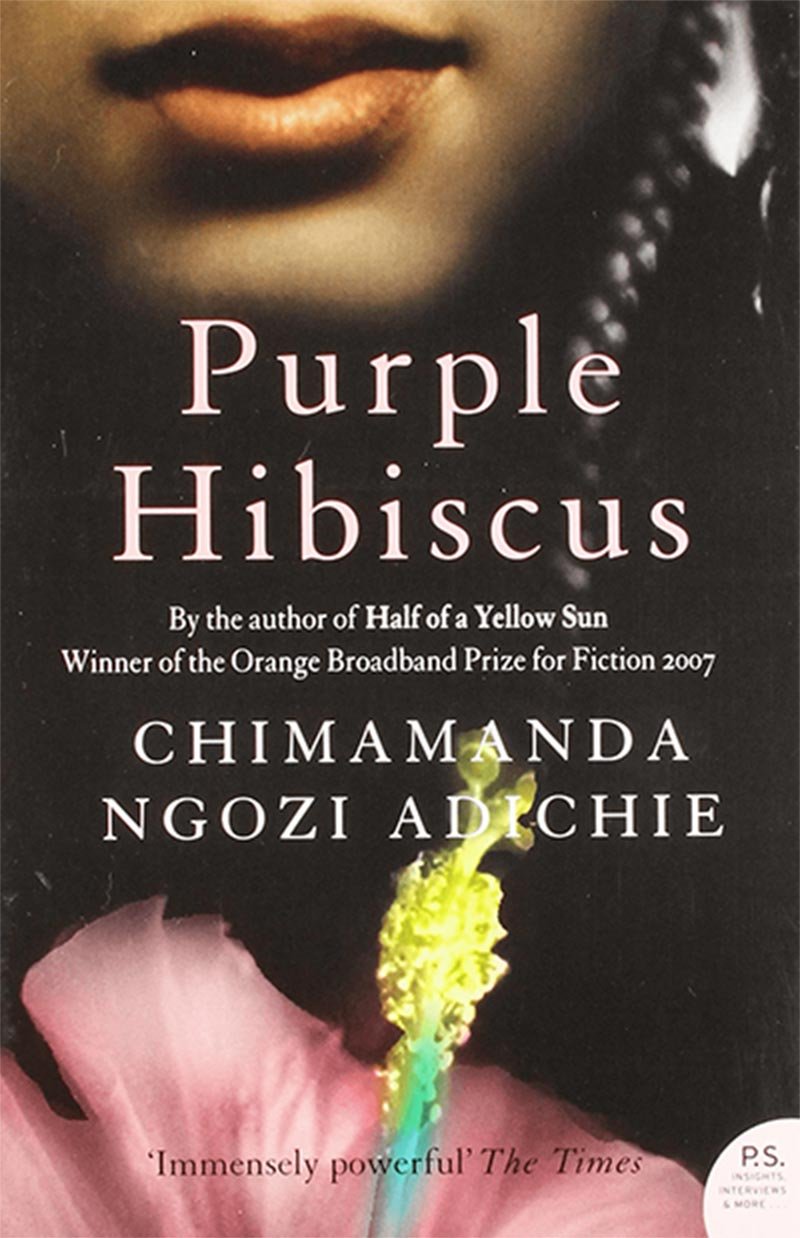News
‘Purple Hibiscus’ By Chimamanda Ngozi Adichie: Characters, Themes & Plots

By Idowu Omodolapo, Aliu Marvelous Victoria, Olakanye Josephine & Magnus Harvey
Purple Hibiscus By Chimamanda Ngozi Adichie, is a novel in a class of its own. The Achike family is wealthy; Kambili’s father, Eugene is a giver, a benevolent person to the people, a devout Christian with a clean slate of character yet his home reeks of fear, sadness and uncomfortable silence.
Welcome to a life of intrigues as captured in Purple Hibiscus a coming-of-age novel by Nigerian author, Chimamanda Ngozi Adiche.
Purple Hibiscus tells the story of Kambili Achike and her family. It addresses the issues of identity, gender, patriarchy, religion, and violence in post-colonial Nigeria.
The main thrust of this book independence, freedom, in fact the effects of colonialism on religion, on culture, politics social life, education, and family relationships.
It explicitly exposes the story of a family breaking apart under the confines of oppression and the inability to make clear distinctions between pain and love.
Kambili’s life began to change when her brother, Jaja defies their devout and abusive father, Eugene.
In this novel, we see Kambili getting scorched with hot water for a flimsy reason and Jaja’s pinky finger cut off out of inconsiderate and violent child abuse disguised as correction for a ‘sin’.

Chimamanda Ngozi Adichie
For Eugene, religion is a do or die affair, he believes that every member of his family should follow his orders letter by letter.
Tradition is an exact opposite of religion that can never co-exist for Eugene, this explains the reason behind Kambili and Jaja’s attitude towards their grandfather, Papa Nnukwu.
As a relief, rather as an escape route for Kambili and Jaja, Adiche makes these teenagers evolve under the warm care of their Aunt Ifeoma.
READ ALSO: 5 Essential Books Nigeria’s New President Should Read
They learn that they could embrace both culture and religion peacefully, express themselves without inhibitions unlike the unrealistic expectations crafted in their minds by their father, Eugene.
After experiencing a new world where religion is not a barrier to culture, a world of freedom and liberality, a world of expressive voices echoing and radiating joy here and there, from Chima’s intelligent contributions to discussions, to Obi’s interjections and Amaka’s outspoken personality, Kambili eventually finds her voice.
In Kambili’s words, Aunty Ifeoma’s experimental purple hibiscuses were rare, fragrant with undertones of freedom… a freedom to be, to do.
Themes in Purple Hibiscus
Freedom: this is the dominant theme of the story, from the first page it was evident that a norm had been broken by Jaja, and that retaliation to tyranny will eventually occur at some stage.
Jaja is the representation of the freedom that Kambili seeks. The type of freedom that allows expression, choice, and real family connection.
Throughout the novel, there is a constant fear in Kambili, the fear of disobeying her father, despite wishing and imagining something different for herself.
Religion: this is the second dominant theme of the story, Kambili’s father, Eugene was so blinded by religion that he couldn’t see the level of damage he had caused in his family. Religion made him despise his father, because according to him, Papa Nnukwu was a heathen and should be redeemed before he (Eugene) can start performing the duties of a son.
He thus distanced himself and his family from his father, also abused his wife and children in different ways as ‘repentance of sins’.
The Nigerian brand of Politics: This was introduced into the novel by post-colonial Nigerian political experiences.
Ranging from the various checkpoints, the need for protection, to the arrest of Ade Coker – the editor of Standard newspaper, one of Eugene’s enterprises. Nigerian politics inflected in the background of the story.
Coming-of-age
READ ALSO: Ajadi Reassures On Free Education, Free Text Books For Ogun Students
This theme revolves majorly around the main character, Kambili and her brother, Jaja.
They are both teenagers, on the pathway to adulthood and the time has come for them to choose their individuality, to understand and create an identity…















